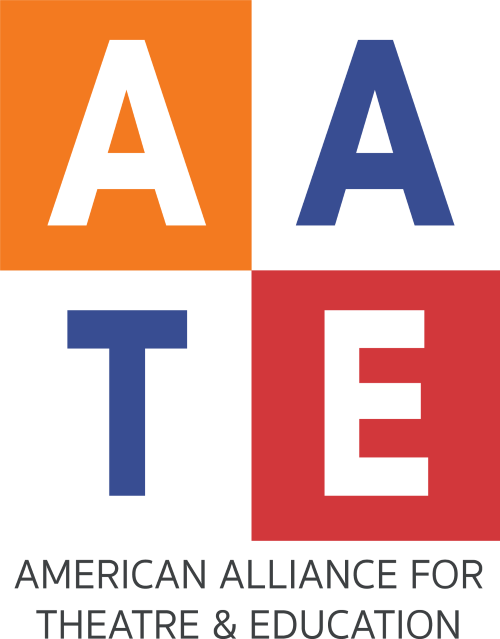- Home
- About AATE
- Membership
- Programs and Events
- Resources
- Networking
- Support AATE
- Online Store
- Contact Us
Session Block 1Saturday, July 22nd, 11:45am-1pm (EDT)Network: Applied Theatre Personifying Resilience Through Narrative: Performing Pedigree Session Chair: Brittney Harris Embodying creative resistance against social inequality, 'Pedigree' is a short film about personal acceptance and recovery from the inexplicit influences of racial hatred and violence. A first-time protester sharing her emotional experience with being arrested and disrespected, this piece explores the lengths to which one declares to take back their power after years of mental and emotional torment at the hands of societal tormentors from her past to the present. In the wake of the political backdrop of the Black Lives Matter Movement, this applied theatre work is relevant to our Black community in providing insight into a cathartic resolution and engaging in civil dialogue beyond the headlines and #hashtags. The question explored is: can embodied storytelling be used as a tool for evolving how narratives of resilience are archived, shared, remembered, and incite a dialogue in promoting social reform and change? This proposal for a virtual dual presentation featuring both a showing solo piece Pedigree film (8 minutes, 46 seconds in total) and discussion on the concept of the performance of resistance/resilience through narrative. Conceptualized during Summer 2020, I deem Pedigree an example of the pedagogical practice of "Activist Theatre". I adapted Augusto Boal's Image Theatre model and developed a movement-based process where my own personal experiences of racial disparity and oppression were the focus of the work. What has been particularly striking about developing this piece, and indeed the BLM movement as a whole, has been its creation through, and subsequent dependence upon, social media. With this presentation, I seek to continue this conversation by engaging participants in developing further strategies, both civil and aesthetic/ therapeutic, in addressing the mental strain of balancing everyday life against the myriad of racial equality and social injustice issues constantly broadcasted through our social media streams and personal conversations. Network: Playwrights A Toolkit for Producing Stage Works on College Campuses During Turbulent Times Session Chairs: Cheryl Davis & Amy VonMacek Other Presenter(s): Ralph Sevush, Lydia R. Diamond, John Weidman In order to address the many compelling concerns raised by the issue of school cancellations, the Dramatists Legal Defense Fund (DLDF) formed a working group of educators, activists, non-profit organizations, and dramatists to study the problem. As a result of over two years of surveying and work, the DLDF created a "toolkit" for educators and institutions to feel equipped in engaging with difficult conversations when pressure for censorship and cancellations may arise from subject matter or issues addressed in certain theatrical works. In this focused session, several participants from the College Campus Working Group will go through the toolkit step by step and answer questions from anyone interested in learning more. The toolkit is available for download at the following link: https://www.dramatistsguild.com/educators#guide-for-stage-works-on-college-campuses-in-turbulent-times Network: High School Classroom Justice: Culturally Responsive, Student-Centered Assessment in the Drama Classroom Session Chair: Jonathan Jones The majority of classroom teachers in the United States are white women (US Department of Education; National Center for Education Statistics, 2021a). As of this writing, the majority of students in public, Pre-K-12 schools in the United States are students of color (National Center for Education Statistics, 2021b). Given this racial, ethnic, and cultural incongruence, when we think about and implement assessment, we must reflect on what we are asking students to do in our classrooms. "Are you asking students of color to perform for you" Statistically speaking, a white woman and to conform to your "white gaze" a manifestation of a performance that a white person will find aesthetically pleasing, or to conform to a white standard or white criteria? And if so, what will you do to eliminate that paradigm from your classroom? How do we overcome this? From when you craft the learning objectives, through developing the summative assessment task, you need to consistently employ student-centered, culturally responsive approaches. Consider: What do the students bring to the creative experience? What are their aesthetic sensibilities? What do they consider "good" theatre? In this interactive workshop, participants will investigate culturally responsive, student-centered methods of assessment for learning in the drama classroom. Key questions include: What are culturally responsive and student-centered methods of assessment? "Why might we assess in these ways?" How can we adapt these methods to our diverse learning contexts? What are the challenges and potential successes of culturally responsive and student-centered methods of assessment in the drama classroom? References: National Center for Education Statistics. (2021a). Characteristics of Public School Teachers. National Center for Education Statistics. (2021b). Racial/Ethnic Enrollment in Public Schools. |
